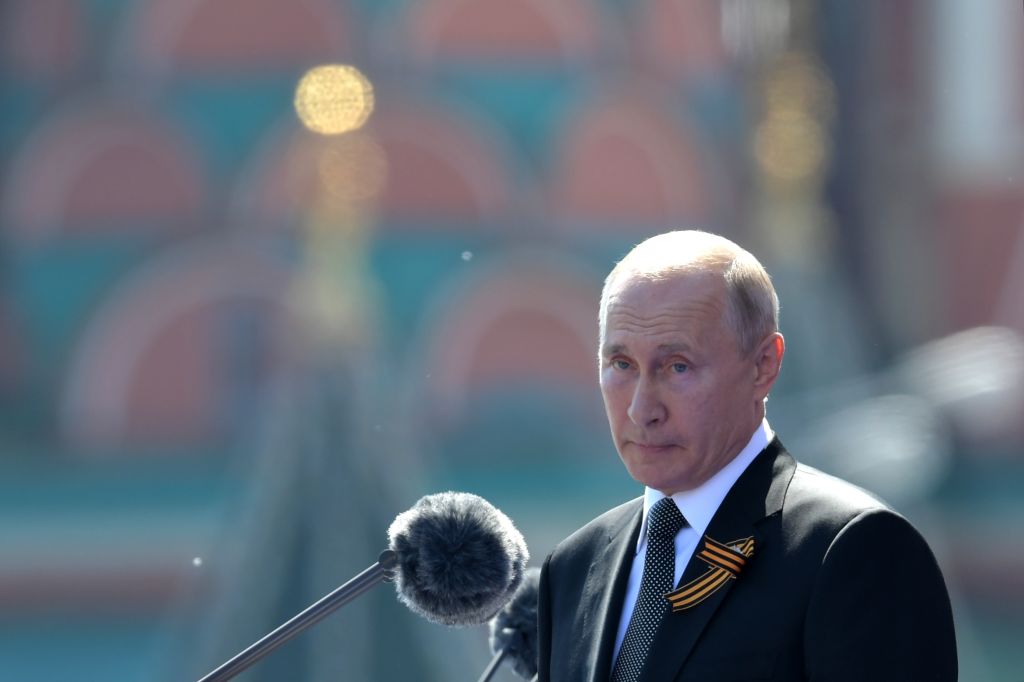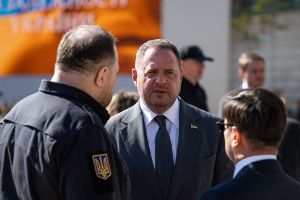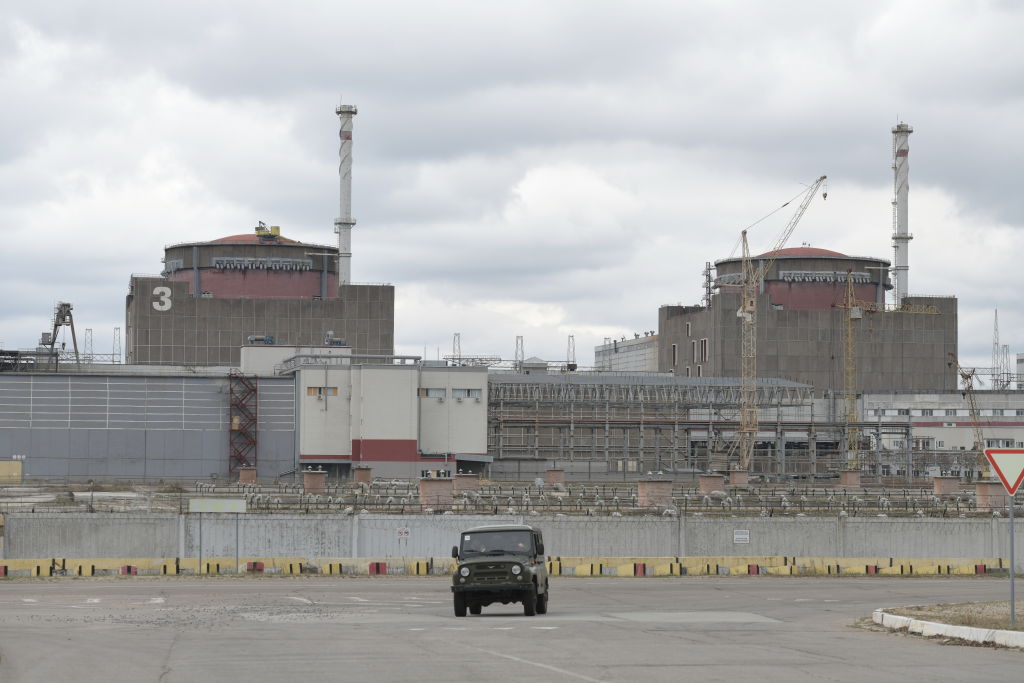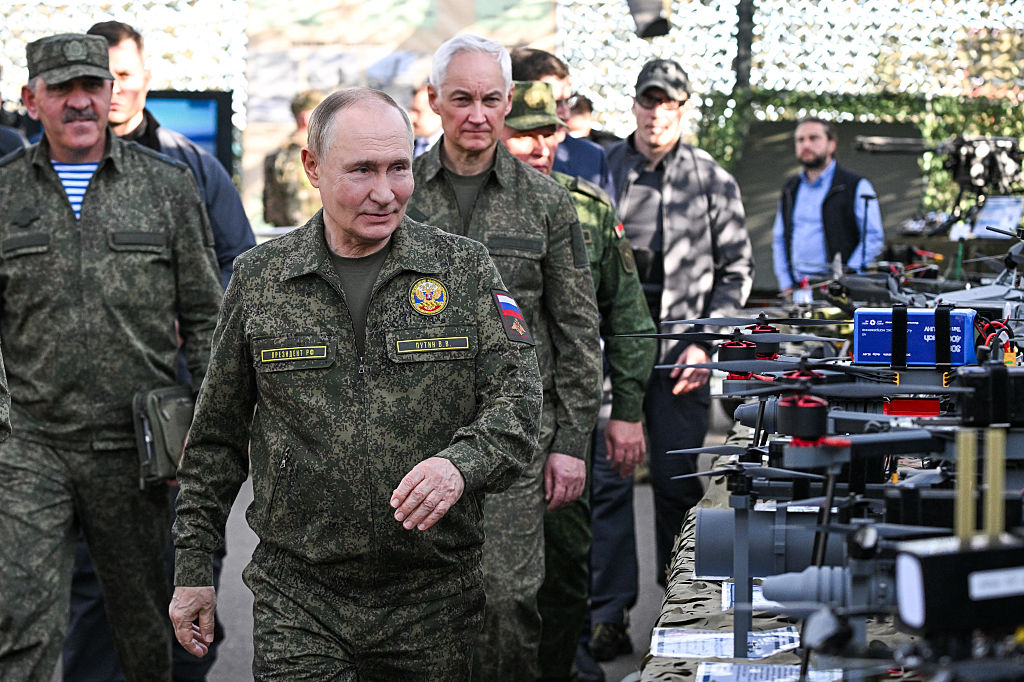“Victory Day” is one of the most solemn events on the Russian calendar. Every year on May 9, the country gets together to celebrate the defeat of Nazi Germany in what Russians call “the Great Patriotic War,” in which as many as 26 million Soviet troops and civilians perished. It’s a time for reflection, for an appreciation of history, and, yes, for pomp and circumstance, with Russian troops decorated in dazzling uniforms marching in unison throughout Moscow’s Red Square.
This year’s Victory Day celebrations, however, had much of the world on edge.
In next-door Ukraine, Russian forces were taking a beating, with smaller but nimbler and more determined Ukrainian units continuing to mount stiff resistance against a Russian military offensive in the Donbas. Speculation was ripe about what Russian President Vladimir Putin, the man who plunged his country into what increasingly looks like a quagmire of his own making, would say during his speech. Some predicted Putin would use the festivities to link his war of choice to the former Soviet Union’s epic battle against Nazism. Others anticipated Putin would formally declare war, allowing the Kremlin to mobilize reserves across the country in order to reinforce a Russian army bleeding equipment and personnel.
What we got instead was a cornucopia of falsehoods, revisionist history, and pablum about how Russia simply had no other option but to prevent the Ukrainian army from conducting a mythological attack against Russian speakers in the Donbas. “Russia gave preemptive rebuff to the aggression,” Putin told the crowd. “It was forced, timely, and the only correct decision.”
Perhaps Putin has a different definition of “correct” than the rest of us. Russia’s power has cratered more in the last ten weeks than it has in the last ten years. The thousands of Russian battlefield deaths, embarrassing retreats around Kyiv, Chernihiv, and Kharkiv, rumors of divisions at the top of the Russian policy elite, and projections of the worst economic contraction in nearly three decades are well known.
What is less appreciated is just how detrimental the war has been to Russia’s geopolitical position, not to mention how humbling it is (or at least should be) to Russia’s sense of greatness. Win or lose in the Donbas, Russia is losing strategically, evidenced by a brain-drain of Russian talent, the evaporation of foreign direct investment, a paradigm shift in Europe toward energy diversification, and an emboldened NATO preparing to expand to the Nordics. The Russians are proving to be masters at stumbling over themselves. Putin isn’t so much playing chess as rolling the dice at the craps table, hoping against all hope that Russia can dig itself out of debt.
All of which makes the current Russian offensive in the Donbas a fundamental stage in the conflict, particularly for the Kremlin. Ukraine’s steadfast defense, assisted in a major way by US intelligence assistance and billions of dollars in US-supplied weaponry, has forced the Russian military to downsize its battlefield objectives. Turning Ukraine into a vassal state or quickly replacing Ukrainian President Volodymyr Zelensky’s administration with a pro-Kremlin surrogate became distant dreams long ago.
Indeed, if it took the Russians more than two and a half months to grind the port city of Mariupol into submission (Ukrainian fighters are still holed-up in the Azovstal steel complex despite a Russian army siege), then common sense dictates they won’t conquer the entire country. Putin may still daydream about bringing the entirety of Ukraine into the fold, but it appears even he is beginning to realize the depth of the Russian military’s problems. The ongoing offensive in the Donbas is as much a consolation prize as it is a bid by Putin to snatch victory from the jaws of defeat.
The Ukrainians, of course, have no intention of giving Putin any victory to speak of. Flush with Western-supplied weapons and confident the US and its allies will continue to support Ukraine for as long as the war goes on (the G-7 said as much during a video conference last weekend), Zelensky believes a full-blown Russian military defeat is still in the cards.
Yet military defeat is something Putin will do everything in his power to avoid. As CIA Director William Burns observed to the Financial Times over the weekend, the Russian leader is in a dog-eat-dog mindset. “I think he’s in a frame of mind in which he doesn’t believe he can afford to lose,” Burns told the conference. “I don’t think this means Putin is deterred at this point because he staked so much on the choice that he made to launch this invasion … he’s convinced right now that doubling down still will enable him to make progress.”
If Burns’s assessment is right, we should anticipate a drawn-out, bloody continuation of the war over a period of weeks, if not months. The Russians are as committed to victory in the Donbas as the Ukrainians are to a Russian defeat. With two adversaries bent on holding firm, serious peace negotiations will have to wait until operations in the Donbas conclude one way or the other. If anything, Putin’s remarks today confirm this hypothesis.

























